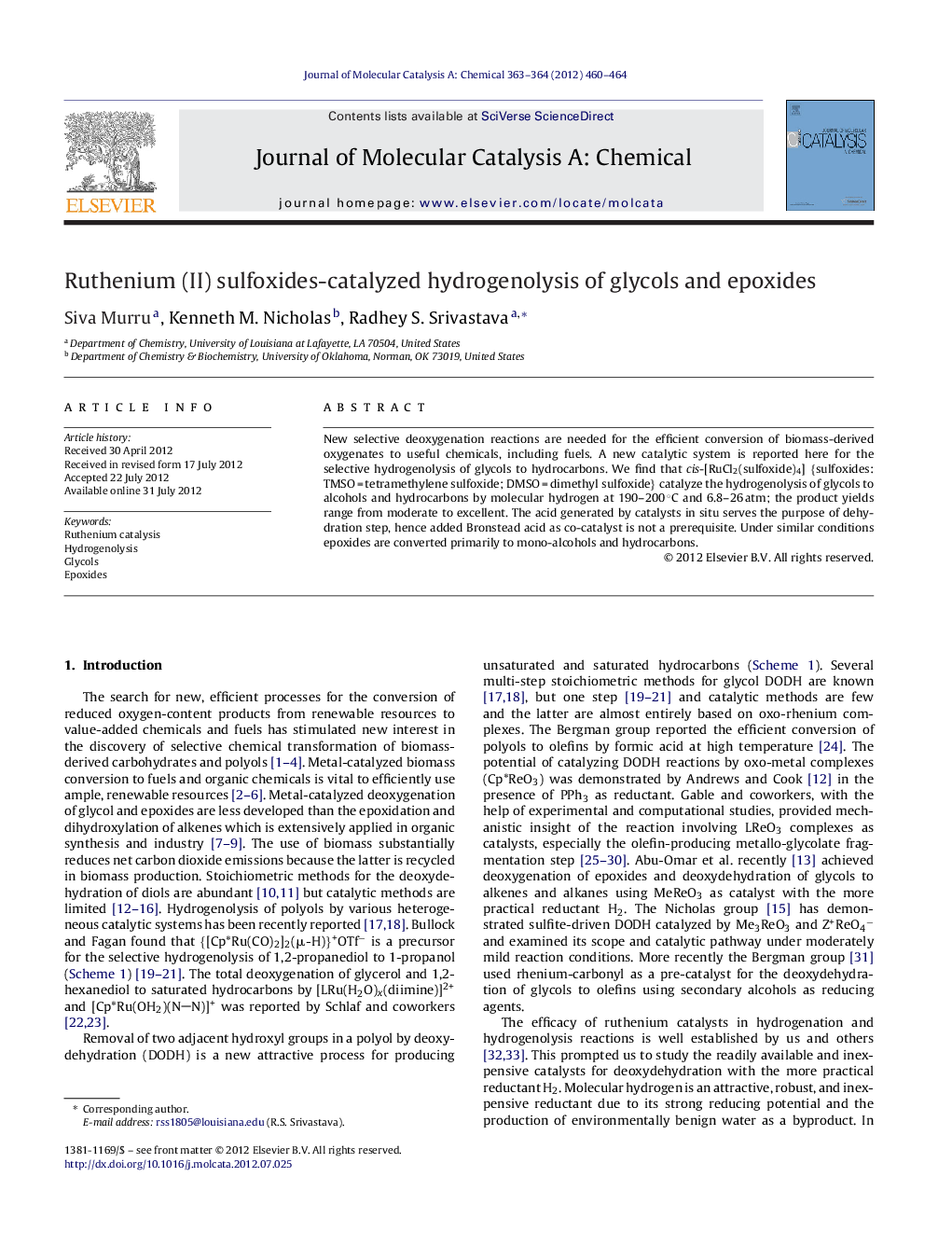| Article ID | Journal | Published Year | Pages | File Type |
|---|---|---|---|---|
| 66061 | Journal of Molecular Catalysis A: Chemical | 2012 | 5 Pages |
New selective deoxygenation reactions are needed for the efficient conversion of biomass-derived oxygenates to useful chemicals, including fuels. A new catalytic system is reported here for the selective hydrogenolysis of glycols to hydrocarbons. We find that cis-[RuCl2(sulfoxide)4] {sulfoxides: TMSO = tetramethylene sulfoxide; DMSO = dimethyl sulfoxide} catalyze the hydrogenolysis of glycols to alcohols and hydrocarbons by molecular hydrogen at 190–200 °C and 6.8–26 atm; the product yields range from moderate to excellent. The acid generated by catalysts in situ serves the purpose of dehydration step, hence added Bronstead acid as co-catalyst is not a prerequisite. Under similar conditions epoxides are converted primarily to mono-alcohols and hydrocarbons.
Graphical abstractFigure optionsDownload full-size imageDownload high-quality image (125 K)Download as PowerPoint slideHighlights► This new catalytic system uses molecular hydrogen for the selective hydrogenolysis of glycols and epoxides to hydrocarbons. ► Aryl diols give monoalcohols where as alkyl diols converts to alkanes as major products. Remarkably, our system does not require any acid co-catalyst for dehydration because the catalysts generate acid in situ. ► The catalysts can be easily prepared by using RuCl3 and sulfoxides.
